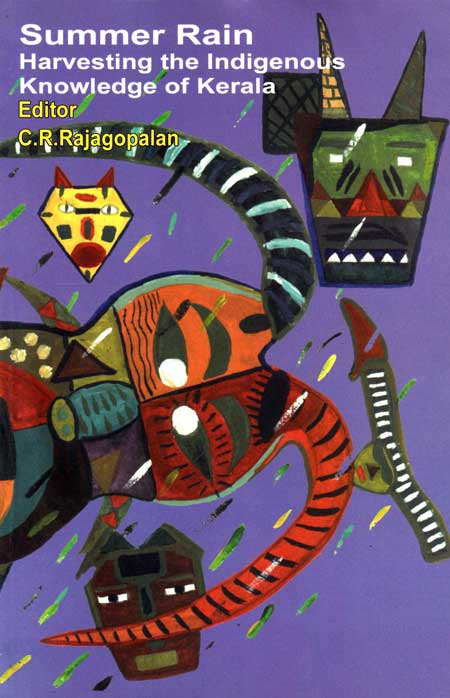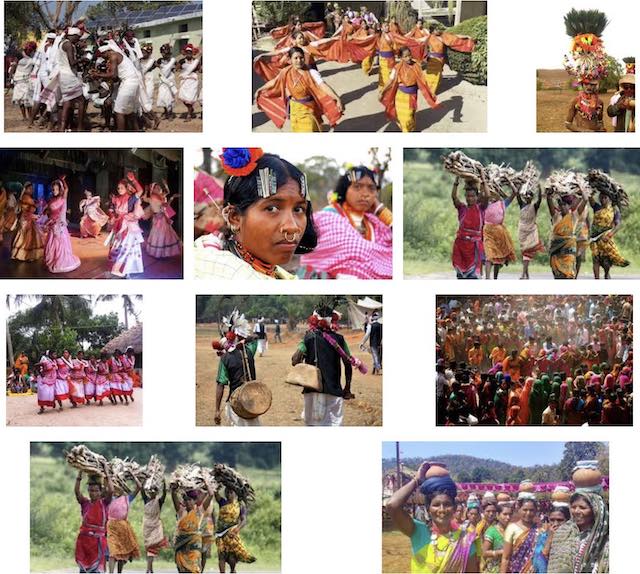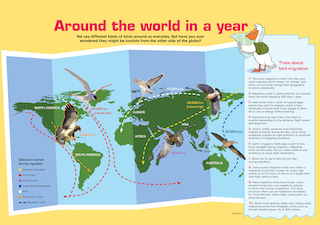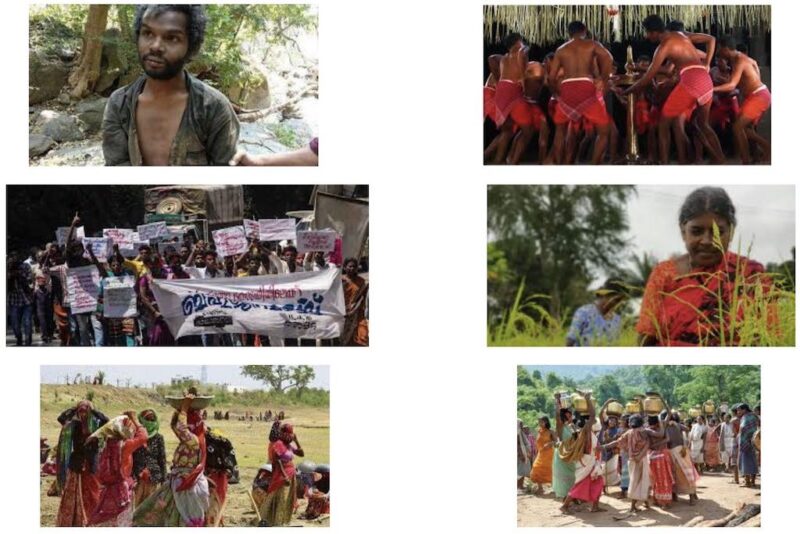
Centre for IK/Folklore Studies
Ethnobotany & ethnomedicine >>
Indigenous knowledge in Kerala, as in any part of the world, was impeccable in matters concerning the forests, the agricultural fields, the ponds and the rivers. It had a holistic understanding of the social and ecological fabric of the living planet. This book is a compilation of articles that echo the sheer joy of being part of a natural heritage that is simply rich; the articles also echo the pain of many a vanishing tradition. It is an effort to map the indigenous memories. […]
Though Harsh Berger used the term Ethnobotany only in 1895 this was the practising knowledge of the tribals and aborigines from time immemorial. Traditionally transmitted knowledge about plants, their medicinal and other uses and also their cultural significance are the three levels of ethnobotany. Now this branch has grown to the level of collecting and codifying the knowledge traditionally transmitted through centuries by the tribals. Ethnobotany tries to study the relation between human beings and nature. Ethnic people are knowledgeable and their world view about the sustainable life practices is now studied in modern context. […]
The granaries of the knowledge in the memories of the indigenous people, in folk forms, should have patent rights for which people all over the world are fighting.
Indigenous eco-knowledge
Modern biology is partial and technological, and is totally dependent on the laboratory based experiments and innovations.
Modern science views the knowledge about nature only in a technological way in the process of which a major part of the essence is lost. Ethnic people have acquired knowledge about their surroundings through hundreds of centuries of experience and observations, and this makes the modern biology only a secondary source.
Perhaps the first beings that recognised the medicinal value of plants may be birds and animals. Monkeys, rabbits, tigers, cats and other animals are known to prefer feeding on specific plants during particular conditions of the body. […]
Source: C.R. Rajagopalan (ed.) in “Indigenous knowledge – The CFS Experience”, Summer Rain: Harvesting the Indigenous Knowledge of Kerala. Thrissur: Centre for IK/Folklore Studies 2004, p. 12
Up-to-date reports by Indian experts and journalists
Search tips
Combine the name of any particular state, language or region with that of any tribal (Adivasi) community.
Add keywords of special interest (music, poetry, dance just as health, sacred grove and biodiversity); learn about the rights of Scheduled Tribes such as the “Forest Rights Act” (FRA); and the United Nations “Declaration on the Rights of Indigenous Peoples”, “Universal Declaration of Human Rights”, “women’s rights”, or “children’s right to education”.
Ask a question that includes “tribal” or “Adivasi”, for instance: “Adivasi way of life better?” (or “tribal way of life worse?”)
Specify any particular issue or news item (biodiversity, bonded labour and human trafficking, climate change, ecology, economic development, ethnobotany, ethnomedicine, global warming, hunter-gatherers in a particular region or state, prevention of rural poverty, water access).
For official figures include “scheduled tribe ST” along with a union state or region: e.g. “Chhattisgarh ST community”, “Himalayan tribe”, “Scheduled tribe Tamil Nadu census”, “ST Kerala census”, “Particularly Vulnerable Tribal Group Jharkhand”, “PVTG Rajasthan”, “Adivasi ST Kerala”, “Adibasi ST West Bengal” etc.
In case the Google Custom Search window is not displayed here try the following: (1) toggle between “Reader” and regular viewing; (2) in your browser’s Security settings select “Enable JavaScript” | More tips >>
Note: hyperlinks and quotes are meant for fact-checking and information purposes only | Disclaimer >>
List of websites covered by this Google custom search engine
Academia.edu (platform for academics to share research papers) – www.academia.edu
Archive.org – https://archive.org
Centre for Science and Environment – https://www.cseindia.org
Current Conservation – https://www.currentconservation.org
Development and Cooperation (D+C) https://www.dandc.eu
Down To Earth (India) – www.downtoearth.org.in
India Environment Portal – www.indiaenvironmentportal.org.in
Harnessing Nature Magazine – https://harnessingnature.online
Mongabay-India – https://india.mongabay.com
M S Swaminathan Research Foundation – www.mssrf.org
Navdanya (protecting India’s biodiversity based food heritage) – https://navdanya.org
Third World Network (Penang, Malaysia) – https://twn.my
The Shola Trust (nature conservation in the Nilgiri region) – www.thesholatrust.org

Indian online periodicals and platforms | Images view >>
~ ~ ~
Personalize your CustomSearch by combining other search words >>
(e.g. name of a tribal community and region, a craft, or dance and puppetry)
Research the above issues with the help of Shodhganga: A reservoir of theses from universities all over India, made available under Open Access >>
Note: hyperlinks and quotes are meant for fact-checking and information purposes only | Disclaimer >>
For additional learning resources visit the website of the Centre for Science and Environment (CSE), “a public interest research and advocacy organisation based in New Delhi”:
Communication for Awareness
CSE’s publications and informational products have been its strength and they have always combined research and readability to get the message across.

CSE’s tools for awareness raising are periodicals, publications, films/short spots, briefing papers, exhibitions, posters and other products. CSE’s informational products reach people in more diverse ways such as features service, website and e-news bulletins. […]
Source: About CSE
URL: https://www.cseindia.org
Date Visited: 10 July 2022
See also
Biodiversity and development – Kerala
Childhood – Kerala | Childrens rights: UNICEF India | Safe search
Childrens rights: English or Malayalam (UNICEF India)
eBook | Background guide for education
Education and literacy | Right to education
Kerala | State wise ST list (Scheduled Tribes)
Recommendations by the Expert Committee on Tribal Health
Tribal schools and educational projects – Kerala
Video | M.S. Swaminathan on Biodiversity and the sharing of resources
Video | Trailer to “Have you seen the arana?” – Kerala
Vulnerable tribal groups – Kerala
Women | Safe search | President Droupadi Murmu on women’s empowerment
